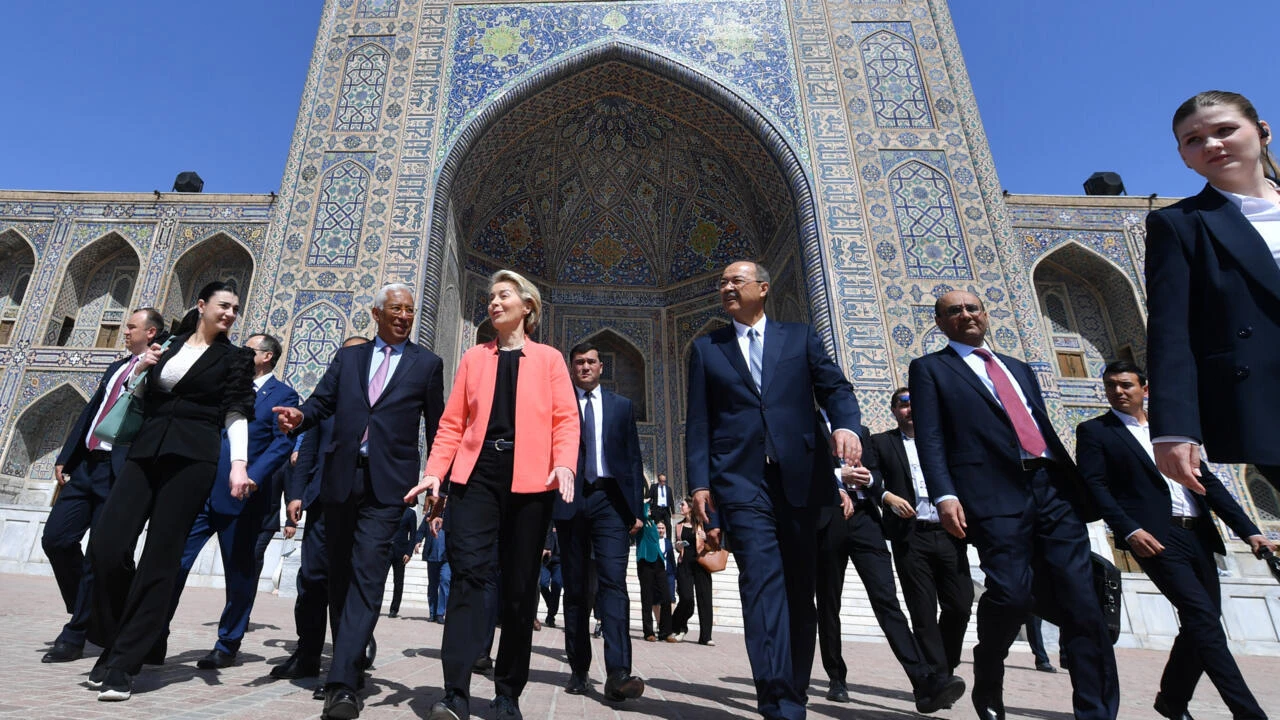German carmaker Volkswagen plans to close 3 plants, cut thousands of jobs
 An employee of German car maker Volkswagen (VW) attends an information event by workers' representatives focusing on their management's latest savings proposals, on October 28, 2024 at the company's headquarters in Wolfsburg, northern Germany. (AFP Photo)
An employee of German car maker Volkswagen (VW) attends an information event by workers' representatives focusing on their management's latest savings proposals, on October 28, 2024 at the company's headquarters in Wolfsburg, northern Germany. (AFP Photo)
Volkswagen, Europe’s largest carmaker, announced plans to shut down at least three of its German plants and cut tens of thousands of jobs as part of a significant restructuring effort, marking a historic moment in the company’s 87-year history.
The move is expected to trigger clashes with unions, as employees brace for major changes.
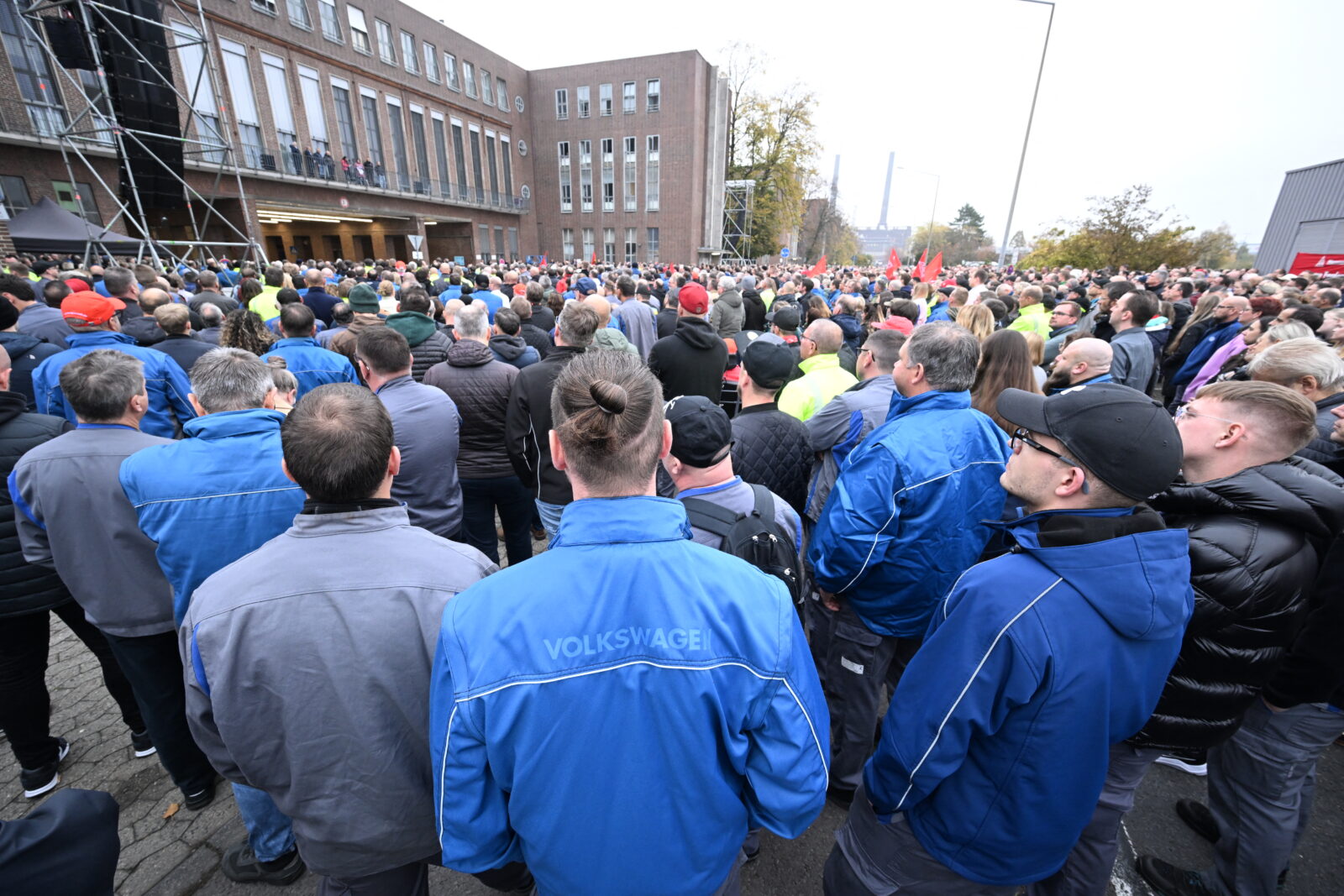
Volkswagen announces plant closures and job cuts
Volkswagen, which operates 10 plants and employs around 300,000 people across Germany, is set to close at least three domestic facilities and implement a 10% wage reduction for its employees. The restructuring plan comes as the company faces slowing sales in major markets, rising competition from China, and the costly transition to electric vehicles (EVs).
This would mark the first time the company has closed domestic plants, signaling the severity of the challenges it faces. CEO Oliver Blume emphasized the high costs associated with the Volkswagen brand and the struggles with disappointing demand in Europe, as well as competition from Chinese automaker BYD.
According to Daniela Cavallo, head of Volkswagen’s works council, and the company’s top employee representative, all of Volkswagen’s German plants are affected. “No factory is safe,” she stated, adding that workers are being forced to bear the consequences of management mistakes.
This would be the first time the company has closed domestic plants, signaling the severity of the challenges it faces.
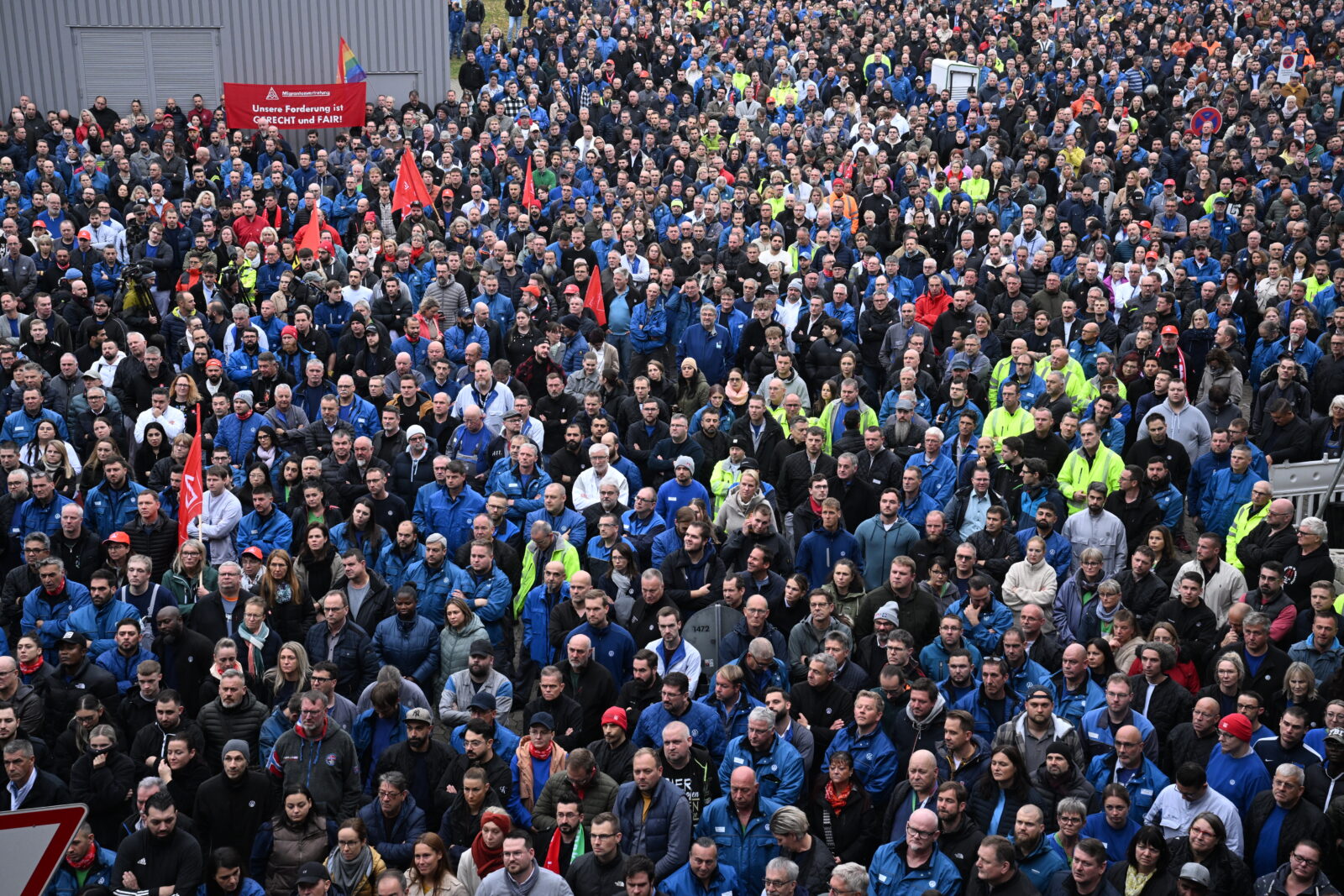
Union opposition and threat of strikes
Volkswagen’s works council, which represents the company’s employees and holds half of the seats on the supervisory board, has expressed strong opposition to the restructuring plans. Cavallo warned that executives have only two days to reverse their decision or risk facing strikes. Speaking to workers at Volkswagen’s main Wolfsburg plant, she accused Blume of “playing with the massive risk” of breaking off negotiations, potentially leading to workforce strikes in protest against job cuts and wage reductions.
Union leaders, including Thorsten Groger of the IG Metall union, have criticized the company for its mismanagement, particularly in the shift to electric vehicles and pricing policies. Gröger called the restructuring plan a “deep stab in the heart of hard-working VW workers.”
Cavallo reiterated the need for a viable plan to safeguard jobs, stating, “We expect Volkswagen leadership to present real solutions rather than empty promises.” The union’s frustrations reflect the growing tension between workers and management as layoffs loom large.
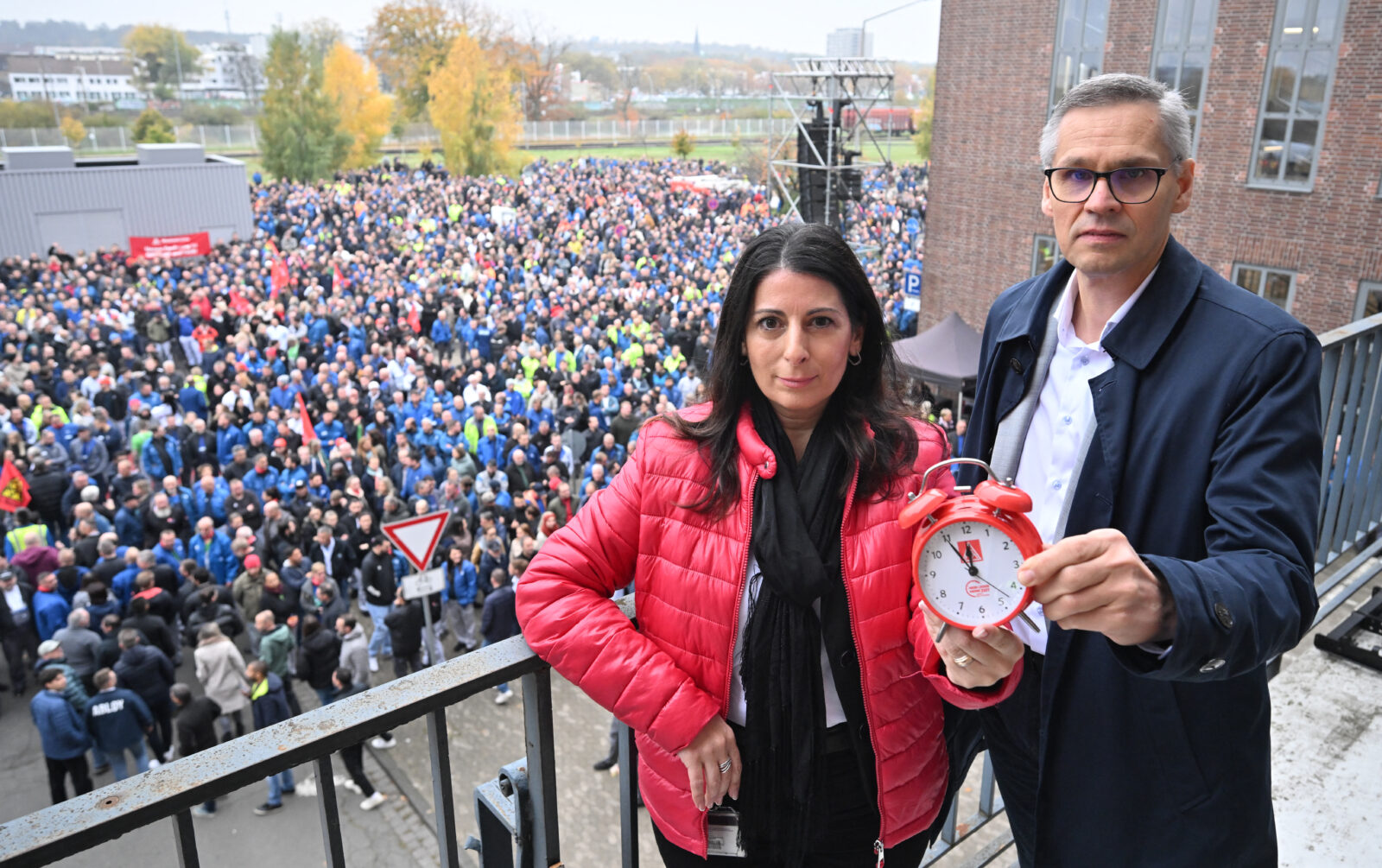
Challenging market conditions impact VW’s future
Volkswagen recently issued its second profit warning in three months, citing difficult market conditions. The company has been navigating a challenging shift to electric vehicles, while also contending with increased competition from Chinese automakers and sluggish sales in other major markets.
Although Volkswagen declined to comment on the specifics of ongoing discussions with the IG Metall union, the company confirmed that it is at a “crucial point” in its decision-making process.
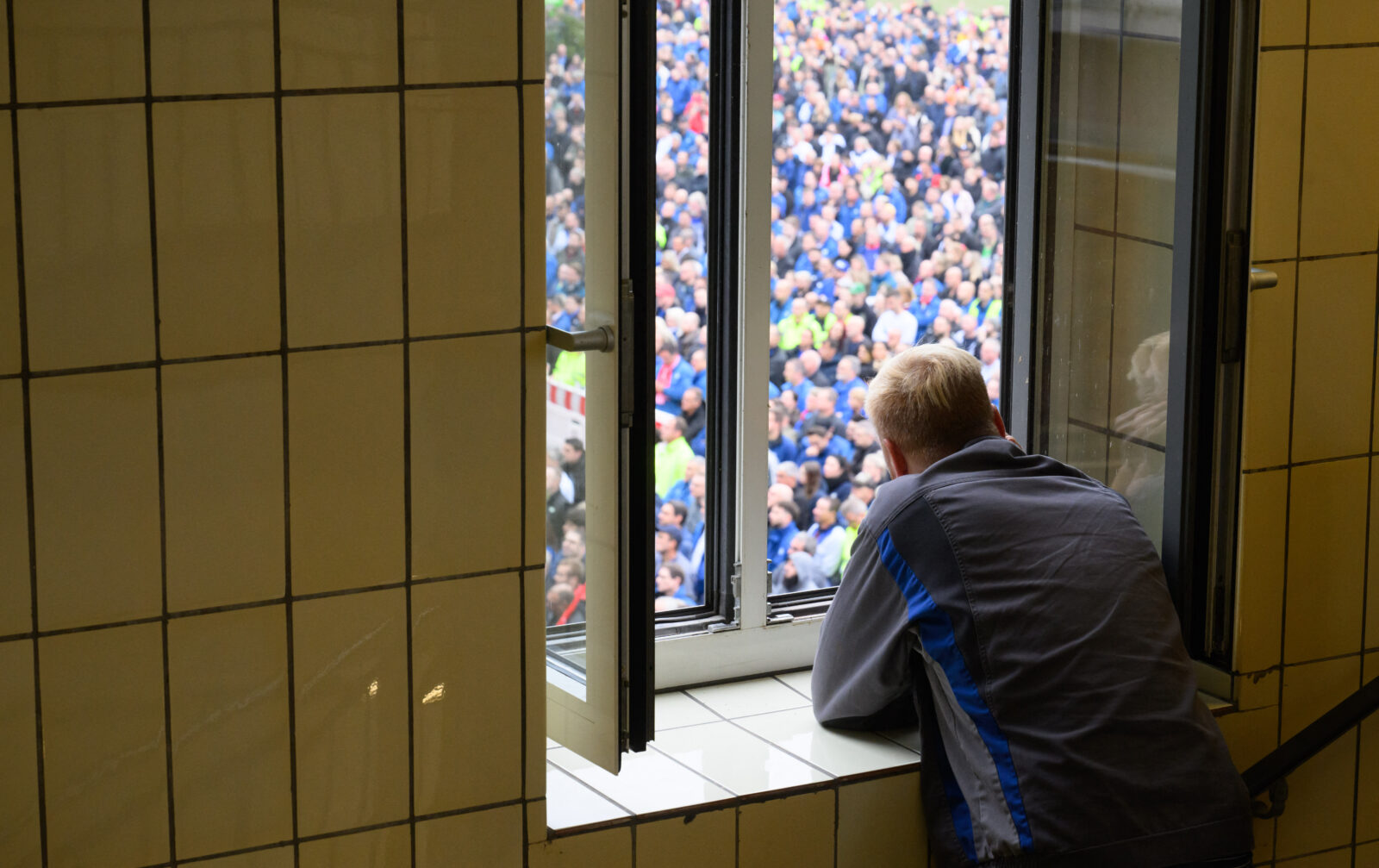
Uncertain future of Volkswagen’s workforce
With Germany serving as a key production hub, the potential closure of plants and job losses will have a significant impact on the local workforce. The restructuring plan, which includes the termination of a job security agreement that had been in place for over 30 years, will allow the company to proceed with layoffs starting in mid-2025.
Volkswagen’s plan is seen as part of a broader push to reduce costs and adapt to the rapidly changing automotive industry. However, the closure of German plants is expected to be a central issue in the ongoing discussions between Volkswagen management and the union, with the future of thousands of workers hanging in the balance.


